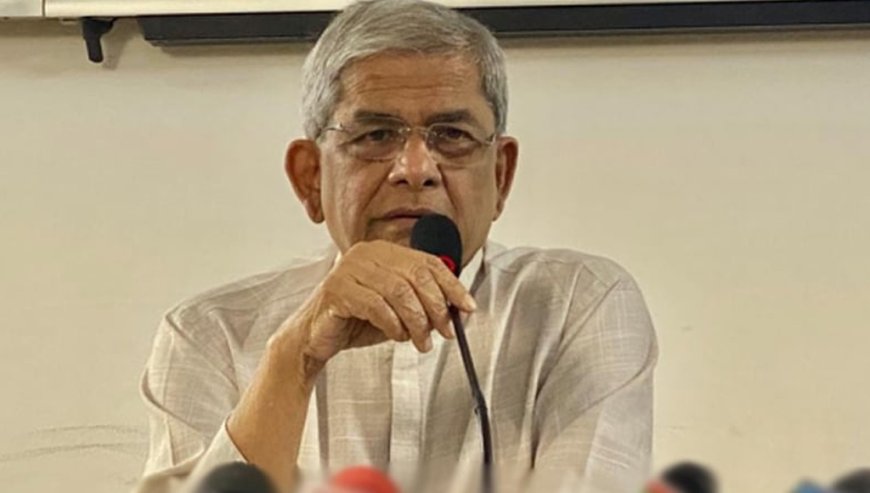BNP Bemoans Bias in Draft Telecom Policy

The Bangladesh Nationalist Party (BNP) has raised concerns over the government’s rush to finalize the National Telecom Policy ahead of the upcoming 13th parliamentary elections. The party fears that the draft policy favors large mobile operators at the expense of small and medium-sized enterprises (SMEs) and local internet service providers (ISPs), potentially leading to market monopolization.
At a press conference held at the BNP Chairperson’s office in Gulshan on Thursday, July 2, BNP Secretary General Mirza Fakhrul Islam Alamgir stated, “The recent initiative by the Bangladesh Telecommunication Regulatory Commission (BTRC) to introduce the ‘Draft Telecom Network and Licensing Reform Policy 2025’ has come to the attention of the Bangladesh Nationalist Party-BNP. While the initiative to simplify licensing processes, encourage technological advancement, and expand digital inclusion in rural areas is commendable, we are deeply concerned about the haste with which this significant policy is being pushed forward.”
He added, “A closer analysis of the draft reveals several critical issues that could hinder equitable and sustainable development in the telecom sector. With a constructive outlook, BNP highlights several flaws, ambiguities, and clauses that disproportionately benefit major mobile network operators (MNOs), to the detriment of SMEs and local entrepreneurs.”
Calling the move “inappropriate before the national election,” Fakhrul urged the government to prioritize actions that genuinely serve the public interest and national welfare. “BNP is walking cautiously to pave a smoother path for future politics and the restoration of democracy,” he added.
BNP Standing Committee member Dr. Abdul Moyeen Khan echoed similar sentiments, claiming that the draft policy is designed to provide undue advantages to large telecom operators.
The party also presented three key proposals, emphasizing that “before implementing such a critical policy, the government should conduct a comprehensive financial and social impact assessment and engage in inclusive discussions with all stakeholders, including SMEs, experts, and consumer groups.”
Among the party’s highlighted concerns are the removal of ownership restrictions across multiple service domains, which could allow major operators to establish monopolies, diminishing competition and marginalizing smaller firms. The BNP further noted that deregulation without clear guidelines on asset and liability responsibilities would financially endanger smaller operators.
Moreover, the policy lacks clarity on foreign ownership caps, which may deter international investment and destabilize the sector. BNP warned that without a clear explanation of vertical and horizontal ownership implications, large corporations might expand their dominance further.
Ambiguities in the scope of enterprise services could result in disputes and inequity, as the policy fails to define limitations on fiber-based business connectivity services by mobile operators. There is also no clear guidance on satellite broadband or emerging digital services, creating confusion for potential investors.
BNP’s assessment concludes that the proposed consolidation of ISP licenses and reliance on spectrum in ANSP licenses would benefit major players disproportionately. Though fixed telecom licenses remain technically open to SMEs, the national coverage and service quality standards expected could pose insurmountable challenges for smaller providers.









































































































































































































